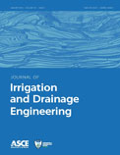
JOURNAL OF IRRIGATION AND DRAINAGE ENGINEERING
Scope & Guideline
Elevating Standards in Irrigation and Drainage Engineering
Introduction
Aims and Scopes
- Irrigation Management Techniques:
Research on various irrigation methods, including surface, drip, and sprinkler irrigation, focusing on efficiency, scheduling, and the impact on crop yield and quality. - Hydraulic Engineering and Design:
Studies concerning the design and optimization of hydraulic structures such as weirs, culverts, and drainage systems, aimed at improving water conveyance and management. - Water Quality and Environmental Impact:
Investigations into the effects of irrigation practices on water quality and the surrounding environment, including the use of treated wastewater and the impact of agricultural runoff. - Sustainable Agricultural Practices:
Research focused on sustainable irrigation practices that enhance water use efficiency, crop productivity, and resilience to climate change. - Hydrological Modeling and Simulation:
Development and application of models to simulate hydrological processes, including rainfall-runoff relationships and water movement in soils, to inform irrigation practices. - Soil-Water Relationships:
Explorations of the interactions between soil properties and water movement, including infiltration and evaporation processes, to optimize irrigation strategies.
Trending and Emerging
- Smart Irrigation Technologies:
An increasing focus on the integration of technology in irrigation practices, including the use of IoT devices, automation, and data analytics to enhance water management and efficiency. - Climate Resilience in Irrigation Practices:
Research addressing the adaptation of irrigation systems to climate change impacts, emphasizing strategies to maintain water availability and crop yields under extreme weather conditions. - Interdisciplinary Approaches to Water Management:
Emerging studies that incorporate perspectives from economics, social sciences, and environmental science to address complex water management challenges. - Advanced Modeling Techniques:
A trend towards the use of sophisticated modeling and simulation techniques, including machine learning and computational fluid dynamics, to enhance predictive capabilities in irrigation and drainage engineering. - Water-Energy-Food Nexus:
Research exploring the interconnections between water use, energy consumption, and food production, highlighting the need for integrated management approaches in agricultural systems.
Declining or Waning
- Traditional Irrigation Techniques:
Research on conventional irrigation methods, such as flood irrigation, has diminished as more efficient and sustainable alternatives gain traction. - Basic Hydraulic Theory:
Fundamental studies on hydraulic principles have become less prominent, likely due to the emergence of more complex modeling and simulation approaches that provide deeper insights. - General Water Quality Assessments:
While water quality remains important, the focus has shifted from broad assessments to more specific studies on pollution sources and mitigation strategies. - Localized Studies without Broader Implications:
Research that does not connect localized irrigation practices to broader environmental or economic impacts has seen reduced publication frequency, reflecting a growing demand for studies with wider applicability.
Similar Journals

Soil and Water Research
Empowering Research for a Sustainable FutureSoil and Water Research, an esteemed journal published by the Czech Academy Agricultural Sciences, is dedicated to advancing the fields of Aquatic Science and Soil Science. With a strong commitment to open access since 2006, this journal facilitates the dissemination of high-quality research and fosters global collaboration among researchers, professionals, and students. Operating from the vibrant academic hub of Prague, Czech Republic, it serves as a key resource for those interested in pressing environmental and agricultural challenges. Featuring a robust H-index and ranking in the Q2 category for both Aquatic Science and Soil Science as of 2023, Soil and Water Research occupies a prominent position in Scopus, ensuring that published works reach a wide audience. The journal invites contributions that explore innovative methodologies and provide insights into soil and water management practices, thus playing a critical role in addressing sustainability issues within these interconnected domains. As researchers navigate the complexities of climate change and resource management, Soil and Water Research stands out as a vital tool for informed decision-making and impactful research.

Journal of Applied Water Engineering and Research
Empowering Policymakers with Applied Water InsightsJournal of Applied Water Engineering and Research is a dynamic platform dedicated to the advancement of knowledge in the field of water science and technology. Published by Taylor & Francis Ltd, this journal aims to bridge the gap between theoretical research and practical applications in water engineering, providing a crucial resource for researchers, practitioners, and policymakers. With an ISSN of 2324-9676 and an impressive ranking in the Q3 category for Water Science and Technology, it occupies a distinctive position within the scholarly community. The journal covers a wide spectrum of topics, including innovative water management strategies, sustainable practices, and the integration of technology in water resource management, thus contributing significantly to the discourse surrounding environmental sustainability. With publication years converging from 2013 to 2024, the Journal of Applied Water Engineering and Research continues to foster impactful research, enhancing our understanding and management of vital water resources.
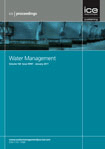
PROCEEDINGS OF THE INSTITUTION OF CIVIL ENGINEERS-WATER MANAGEMENT
Fostering Knowledge for Efficient Water Resource ManagementPROCEEDINGS OF THE INSTITUTION OF CIVIL ENGINEERS-WATER MANAGEMENT is a prestigious journal published by Emerald Group Publishing Ltd, dedicated to advancing the field of water management within civil engineering. With an ISSN of 1741-7589 and an E-ISSN of 1751-7729, this journal delivers peer-reviewed research that spans the critical intersections of water science and technology, contributing valuable insights into sustainable water management practices. As evidenced by its ranking in the 2023 Scopus categories, where it holds the Q3 quartile in Water Science and Technology, and a respectable position among its peers, the journal remains a vital resource for researchers, professionals, and students in the field. Though it is not an open-access journal, it offers accessible subscription options that facilitate worldwide dissemination of knowledge, enhancing its role as a fundamental reference point for cutting-edge developments in water management. For those looking to publish or stay updated on the latest research trends, this journal serves as an essential platform for promoting innovation and sustainable practices in civil engineering and water resources management.
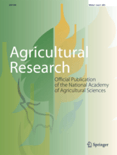
AGRICULTURAL RESEARCH
Advancing agricultural innovation for a sustainable future.AGRICULTURAL RESEARCH is a distinguished academic journal published by SPRINGER INDIA, focusing on the dynamic fields of Agronomy, Crop Science, and Food Science. With an ISSN of 2249-720X and E-ISSN of 2249-7218, this journal has established itself as a valuable resource for researchers, professionals, and students dedicated to advancing agricultural knowledge and practices. The journal is recognized in the 2023 Scopus Rankings, achieving commendable quartile positions, including Q2 in Agronomy and Crop Science and Plant Science, as well as Q3 in Food Science, indicating its influential presence in the academic community. AGRICULTURAL RESEARCH aims to disseminate cutting-edge research findings, innovative methodologies, and comprehensive reviews, fostering collaboration and discussion among scholars in Switzerland and beyond. Through its commitment to scholarly excellence, this journal is pivotal in addressing contemporary challenges in agriculture, ensuring sustainability, and enhancing food security for the future.

Journal of the ASABE
Shaping Sustainable Solutions for a Greener TomorrowJournal of the ASABE, published by the American Society of Agricultural and Biological Engineers, serves as a pivotal platform for disseminating cutting-edge research in various disciplines, including Agronomy, Crop Science, Biomedical Engineering, Food Science, Forestry, and Soil Science. With an impact factor that reflects its significance and reach, the journal ranks in the Q2 and Q3 quartiles across numerous categories in 2023, showcasing its commitment to advancing knowledge in agricultural and biological engineering. Authored by leading experts, the journal offers accessible articles on innovative methodologies, technologies, and sustainable practices essential to the global agricultural and environmental landscape. Open access options ensure that research findings are readily available to a broad audience, promoting collaboration and knowledge sharing among researchers, professionals, and students alike. With a strategic focus on research convergence into 2024, Journal of the ASABE is poised to shape the future of engineering solutions in agriculture and beyond.

Paddy and Water Environment
Championing research that cultivates sustainability in agriculture and water use.Paddy and Water Environment is a pivotal journal published by Springer Heidelberg, dedicated to advancing the fields of Agronomy, Environmental Engineering, and Water Science and Technology. Established in 2005, this esteemed journal focuses on the complex interactions between paddy cultivation and water management, addressing critical issues related to sustainable agriculture and environmental preservation. With an impressive performance in Scopus rankings—holding Q2 positions across multiple categories and showcasing a commendable publication impact—this journal serves as an essential resource for researchers, professionals, and students alike. Paddy and Water Environment provides insightful research articles, reviews, and case studies that contribute to the understanding of the intricate relationships between the environment and agricultural practices, promoting strategies for sustainable development. Subscribers benefit from access to a wealth of knowledge, underscoring the journal's significance in fostering scientific inquiry and innovation within its domain.
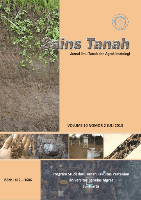
SAINS TANAH
Connecting Local Insights with Global Environmental ChallengesSAINS TANAH is a renowned peer-reviewed journal that focuses on the fields of agronomy, soil science, and environmental studies, published by Universitas Sebelas Maret Surakarta in Indonesia. Established as an Open Access platform since 2001, it aims to disseminate high-quality research that addresses critical issues in soil health, crop management, and pollution, thereby fostering sustainable agricultural practices. With its current impact factor demonstrating a Category Quartile ranking of Q3 and Q4 in major areas such as Agronomy and Crop Science, Atmospheric Science, and Pollution, SAINS TANAH serves as an essential resource for researchers, professionals, and students dedicated to advancing knowledge and solutions in these vital fields. By providing a collaborative environment and upholding rigorous academic standards, the journal not only highlights the significance of Indonesian research contributions but also aims to connect local insights with global agricultural and environmental challenges.

CROP SCIENCE
Exploring the future of crop science for a sustainable world.CROP SCIENCE, published by WILEY, is a premier journal dedicated to the field of agronomy and crop science, offering a platform for high-quality research on crop production, genetics, and sustainable agricultural practices. With an impactful presence since its inception in 1974, the journal has become a significant contributor to advancing knowledge in this critical field, as evidenced by its Q2 ranking in the 2023 categorizations and a Scopus rank in the 72nd percentile among its peers. The journal's aim is to disseminate innovative research findings that inform best practices and policies for enhancing crop yield and sustainability, making it an essential resource for researchers, professionals, and students alike. Although CROP SCIENCE does not currently offer open access options, the journal’s extensive readership and reputation make it a valuable asset for anyone invested in the future of agriculture.
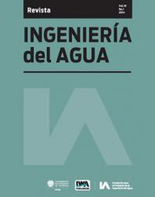
Ingenieria del Agua
Exploring the Frontiers of Water Resource EngineeringIngenieria del Agua, published by Universitat Politècnica de València, Editorial UPV, is a prominent open-access journal dedicated to the field of water engineering and management. With its ISSN 1134-2196 and E-ISSN 1886-4996, this journal has been facilitating the dissemination of critical research and innovative practices in water resources since 1994. With a commitment to providing unrestricted access to high-quality research, Ingenieria del Agua aims to serve as a pivotal platform for researchers, professionals, and students alike. Focused on the intersection of hydrology, environmental engineering, and sustainability, the journal encourages submissions that address contemporary challenges in water resource management, promoting advancements that are vital for both ecological conservation and societal needs. By fostering a collaborative academic environment, it plays an essential role in shaping the future of water engineering.
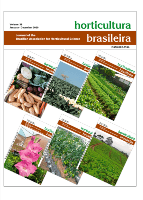
Horticultura Brasileira
Innovative insights into the world of horticulture.Horticultura Brasileira is a leading open access journal published by the ASSOC BRASILEIRA HORTICULTURA, dedicated to advancing research in the fields of horticulture, plant science, and soil science. With an ISSN of 0102-0536 and an E-ISSN of 1806-9991, this journal has been an integral part of the scientific community since its inception, embracing open access practices since 1999. Based in Brazil, it provides a platform for researchers to disseminate their findings and contribute to the growing body of knowledge in horticultural science and related disciplines. Despite its current Q3 ranking in multiple categories such as Horticulture, Plant Science, and Soil Science within Scopus, the journal continues to attract a diverse array of scholarly articles, fostering innovation and collaboration among scientists. The journal aims to bridge the gap between research and practical applications, making it an invaluable resource for students, professionals, and academics alike who are looking to expand their understanding and impact in the field.